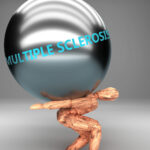May 12th marked World Fibromyalgia Awareness Day, a day designed to help bring about increased understanding of the signs and symptoms of this disease. Fibromyalgia is a complex condition, the exact cause of which is unknown. Due to this, diagnosis can be difficult and take a number of years. Part of the problem is there is no one diagnostic test for fibromyalgia — doctors usually rule out several other diseases and disorders to arrive at this conclusion.
This also means that treatment options are limited. In the UK, patients are generally given painkillers, antidepressants, antipsychotics and/or anticonvulsants to treat their pain. In some cases, doctors may also prescribe sleeping medication to help with insomnia and muscle relaxants or anticonvulsants to treat muscle stiffness and spasms. As well as medication, patients may also be offered exercise and psychological support. The effectiveness of some of these medications can decrease over time, and patients often require a combination of different interventions to achieve a positive effect on their symptoms.
MyAccess Clinics’ team of experienced specialists works with patients suffering from a variety of chronic conditions, including fibromyalgia.
Symptoms of fibromyalgia
The symptoms of fibromyalgia match those of a number of other conditions, including chronic fatigue syndrome, rheumatoid arthritis and multiple sclerosis, another factor that can sometimes make diagnosis more complicated. Symptoms also tend to differ from patient to patient and the severity of symptoms may vary over time.
Symptoms of fibromyalgia include:
- Widespread pain, which may be felt throughout your body or in particular areas, like the back and neck
- Sensitivity to pain, bright light, and even certain foods
- Muscle stiffness
- Extreme fatigue
- Poor sleep quality
- Cognitive problems — difficulty remembering things, trouble concentrating.
- Frequent headaches
- Irritable bowel syndrome
- Dizziness
- Restless leg syndrome
- Anxiety and depression
Medical cannabis and chronic pain
In 2018, medical cannabis was legalised in the United Kingdom, allowing it be prescribed to eligible patients for a number of conditions, including arthritis, neuropathic pain, and fibromyalgia. In order to be eligible for medical cannabis, patients must have tried a number of different treatment methods with little or no success.
Medical cannabis products are derived from the cannabis plant, which contains over a hundred different cannabinoids and other compounds that are believed to contribute to its effects. Of these, there are two major cannabinoids, delta-9-tetrahydrocannabinol (THC) and cannabidiol (CBD), which are believed to interact with our endocannabinoid system (ECS). The ECS is a key signalling system in the body, involved in regulating several different processes including sleep, mood, appetite and memory.
Medical cannabis for fibromyalgia
It has been suggested that a possible cause of fibromyalgia could be a deficiency in endocannabinoid levels (also known as Endocannabinoid Deficiency Syndrome). Medical cannabis may help to alleviate fibromyalgia symptoms by helping to modulate this deficiency.
MyAccess Clinics’ team of trained and experienced consultants Will work with you to determine if medical cannabis is the right treatment option for you, taking into account your medical history, how you have previously responded to other medication, and any potential side effects you need to be aware of.
For more information about medical cannabis products, patient eligibility, and medical cannabis treatment for fibromyalgia, contact the team at MyAccess Clinics today.





